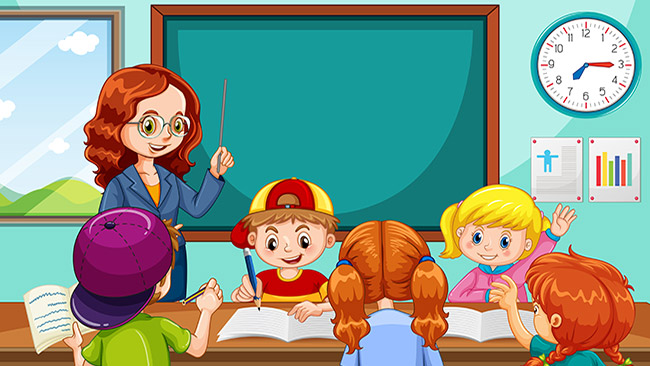Today, the search for new forms and methods of organizing student learning is a real challenge. In the process of creating a new form of learning such as non-standard lessons or its individual elements, the teacher needs to forget the usual patterns, come up with and offer new teaching options that would interest students, attract their attention, intensify activities, make them think, seek, act and accept important decisions.
How to do it in the best way? What lesson plans and activities for teachers will be interesting and informative for students? We have prepared a selection of ideas for non-standard lessons that are convenient to implement both in-person and remotely.
1. Quiz
A quiz is usually carried out at the assessment stage of practical and theoretical knowledge of students. Quizzes can be both traditional (question-and-answer) or inspired by popular TV shows like “Who wants to be a millionaire?”. The number of questions in the quiz must be determined in advance. For example, students are divided into three teams, each of which the teacher gives homework on the topic of the lesson. The game consists of 5 stages:
- Introductory word of the teacher;
- Warming-up;
- Giving final instructions: the teacher informs the students about the time to think about the question and the number of points for the correct answer;
- Playing the game;
- Summing up.
Depending on the level of the class, they can be both simple and complex. If they are simple, the assessment is not performed, but you need to thank the children for their active participation.
2. Standup Lesson
Such a lesson can be conducted in the form of competitions between teams. The stages of the lesson may include warming-up, group stage, and competitions between captains. At the beginning of the lesson, each team chooses a team name (preferably based on the lesson topic) and a captain. A jury should also be invited to the class to evaluate each stage of the lesson. Questions and tasks should be informative, educational, and interesting. For example, the lesson may look like this:
- Giving a home task to the teams;
- Warming up. Teams ask each other questions;
- Members of each team perform 3-4 tasks at the board;
- Tasks for team captains;
- Summing up.
3. Fairy Tale Lesson
Such an unconventional lesson is appropriate to conduct at the generalization stage of the studied material. Tales of any writer can be taken as a basis. As in fairy tales, such a lesson should have positive and negative characters. There must be a plot: a problem to solve, an unusual situation, or a mystery. The next stage is the development of the plot, where there is always a struggle between good and evil, disputes, overcoming difficulties, etc. During this stage, children answer the teacher’s questions about the material studied. The fairy-tale lesson ends with a solution: the victory of good over evil or knowledge over ignorance.
4. Debates
The key task of this type of activity is to teach children to prove their opinion with the help of strong arguments. The main skills that are developed in this case are the ability to listen and hear and clearly express their thoughts. For example, in a literature lesson, children sit in a circle to discuss the protagonist of the book. Each student, before expressing their point of view, must comment on the point of view of the previous student, using the following scheme:
- I believe that…
- I (dis) agree with the opinion, because…
- To my mind…
- I do not completely agree with the opinion…, because …

5. Journey Lesson
The lesson is conducted in the form of an imaginary journey. The stages of such a lesson are stops along the way. The guide can be a teacher or a pre-trained student. Students are offered assignments on the topic of the lesson, then the children choose imaginary transport, equipment, clothing – everything you need to travel.
6. Lesson-meeting
A writer, scientist, traveler, doctor, or other specialist is invited to this type of lesson. The choice of the guest depends on what topic the students are studying. On the eve of the meeting with the guest, students should prepare questions that interest them most.
7. Conference
This type of lesson is most in-demand in high school. The children are informed about the topic of the conference in advance, the class is divided into groups, each of which receives a topic for the preparation of a report with a multimedia presentation.




Leave a comment
Have something to say about this article? Add your comment and start the discussion.